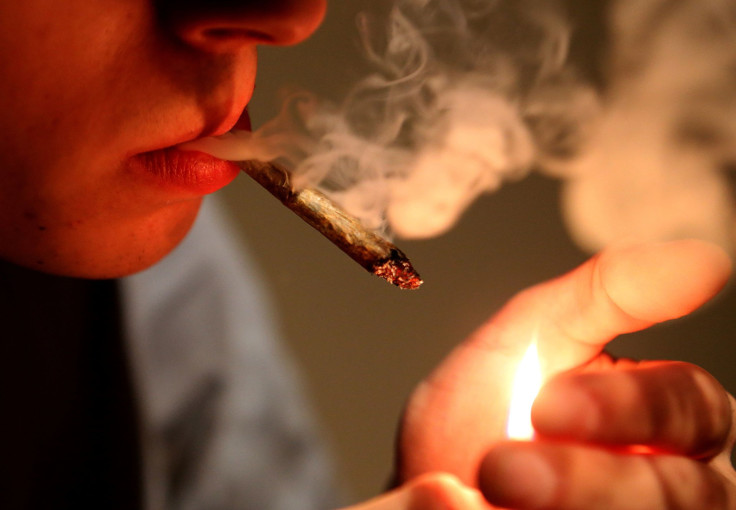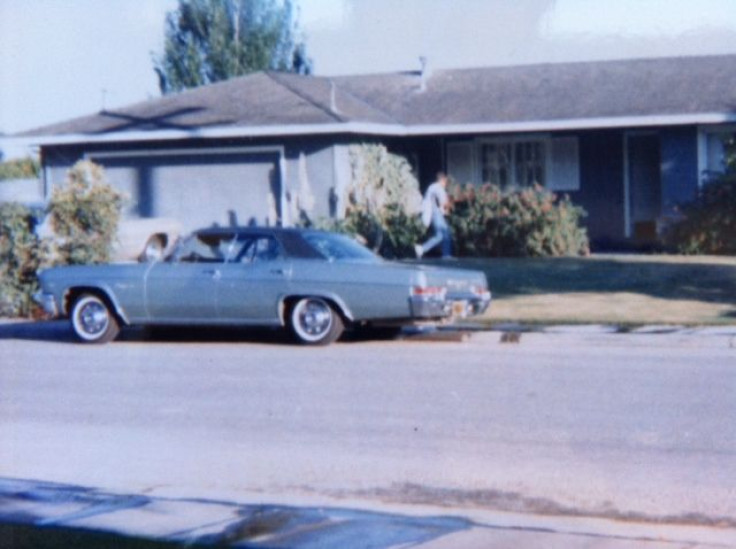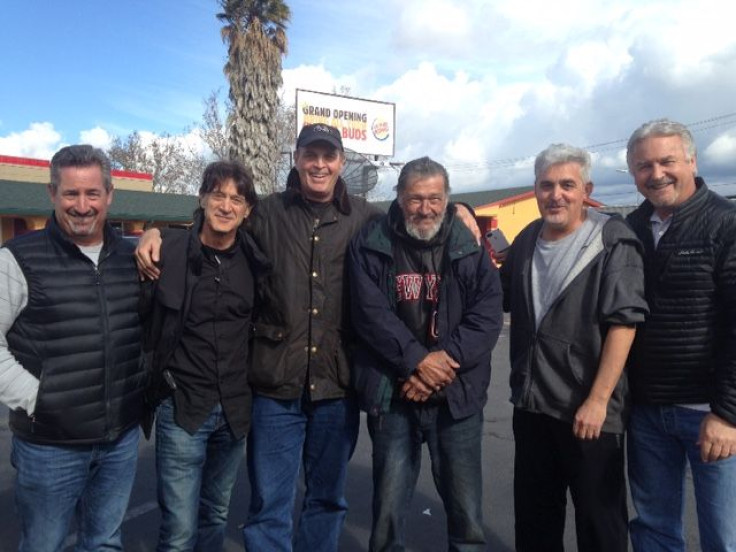The Marijuana Holiday 4/20 Has Become Big Business, But Is That Good For The Cannabis Movement?

Heavy snow in Colorado this past weekend put a damper on the celebrations leading up to 4/20, the annual April 20 celebration of all things marijuana-related that occurs on Wednesday this year. On Saturday, organizers scrapped a major cannabis rally in downtown Denver at the last minute, and hundreds of flight cancellations at Denver International Airport frustrated the plans of travelers aiming to spend the week sampling the state’s legal cannabis market in honor of the cannabis high holiday. But that didn’t mean folks weren’t still ready to pre-party.
On Saturday afternoon, customers lined up in the lobby of Simply Pure, a Denver recreational marijuana shop, since the shop’s “4/20 Block Party” product specials (one-gram joints for $4.20 and other deals) had filled the retail space to capacity. As customers from as far away as Washington, D.C., sniffed at sample jars filled with cannabis strains, a sales representative from Incredibles, a marijuana edibles company, manned a nearby display table, handing out branded pens and lighters and promoting the virtues of the company’s spiked chocolate bars. “It’s great if you drop it into your coffee,” he told a prospective customer.
The Block Party, which also involved drink specials and live music at the nearby Jezebel’s Southern Bistro and Bar, was just one of many local events planned all week around 4/20, including marijuana-infused chef dinners, a 4/20-friendly art gallery walking tour, a marijuana educational symposium and multiple concerts featuring the likes of Method Man, Cypress Hill, George Clinton and Snoop Dogg.
And that’s just Colorado. Los Angeles, San Francisco, Seattle and other cities around the country boast their own bevy of 4/20 festivities. Wanda James, co-owner of both Simply Pure and Jezebel’s, knows such events have come a long way from the scruffy rallies and secret parties of 4/20s past, but she’s okay with the shift. “It’s progress. It’s neither good nor bad,” she said as she managed the crowds at Simply Pure on Saturday afternoon. “I think it’s important that we have chef events and smoking events and even pot cotillions. 4/20 isn’t just for one subsection of people. It’s for everybody.”
But as 4/20 celebrations become increasingly professional and culturally diverse, they’re also turning into big business. Admission to the various 4/20 concerts cost up to $150 per ticket, and major corporate brands are getting in on the action: General Mills plastered Denver billboards and bus ads with Totino’s Pizza Rolls promotions featuring slogans like “Stock Up B4/20.” But is this evolution good for the marijuana movement? Does the shedding of 4/20’s counterculture roots signal a cultural victory for cannabis advocates, or do such changes risk jeopardizing what made the holiday unique and important to its constituency in the first place?
Some people say “420” became synonymous with marijuana use — smoking up at 4:20 p.m. and, for night owls, 4:20 a.m. are also popular activities — because 420 is the police radio code for marijuana consumption. But that’s incorrect. The true origin story is far stranger. It involves a group of five high-spirited high school students 45 years ago in San Rafael, California, who called themselves the “Waldos” because they liked to chill out by a particular wall on campus. And one fall day in 1971, an acquaintance gave the Waldos a treasure map that led to a marijuana grow on the nearby Point Reyes Peninsula and told them to go find it.
“Like kids today thinking about candy, all we could think about was that candy out there on the coast,” said David Reddix, one of the Waldos, in a recent phone interview. The brother-in-law of a friend had apparently been tending a small patch of cannabis, but since he was in the U.S. Coast Guard Reserve, he’d become nervous about getting caught. So he was offering the plants up to anyone who could use the map he’d drawn to find them. Sensing opportunity, the five Waldos agreed to meet at 4:20 every afternoon at their school’s Louis Pasteur statue, smoke a joint, and then head out to the coast in search of the treasure in their “Waldos Safari Mobile,” a ’66 Chevy Impala with New Riders of the Purple Sage and Santana blasting on the 8-track stereo.

After several weeks of fruitless searching, the Waldos gave up the treasure hunt. But the 4:20 smoke breaks continued, with the group signaling meetings by saying “4:20 Louie” and then just “4:20” to each other in the school hallways. The teenage hijinks might have faded away for good, if the tradition hadn’t worked its way into the Grateful Dead scene that was centered in San Rafael, but was spreading across the country. Soon the Waldos noticed “420” carved into park benches and spray-painted on walls. In 1995, marijuana activists staged cannabis rallies on 4/20 in Vancouver and San Francisco, events that these days draw tens of thousands of attendees. Now there are 4/20 celebrations around the world, from the Canadian Yukon to South Africa to Australia, including in many locales that refer to the date as 20/4.
“I thought it was pretty funny,” said Reddix. “What started out a little funny joke, a secret code, turned into a worldwide phenomenon.”
But not everyone in the cannabis community appreciates what the phenomenon has become. “It’s lost its soul, it’s lost its meaning, which was drug reform in general,” said Kayvan Khalatbari, co-founder of the Denver-based Denver Relief marijuana dispensary and consulting group. “It was not just about partying and getting high. It was about, ‘We worked hard on this issue, now let’s celebrate and relax a bit.’” The way Khalatbari sees it, 4/20 rallies were communal acts of civil disobedience, where people smoked marijuana to protest the harsh drug-war tactics that had demonized the drug and sent so many people, especially minorities, to prison. Now, in his mind, 4/20 feels more like Saint Patrick's Day: An opportunity for folks to get blissfully obliterated without stopping to consider what the holiday is really about.
It’s also possible that as 4/20 loses its countercultural vibe, it could also lose its marketing cachet. “The more popular it becomes, the less subversive it becomes,” said Allen St. Pierre, executive director of the National Organization for the Reform of Marijuana Laws (NORML). “And the less subversive it becomes, it’s possible it will lose some of its commercial value. If you're in marketing, that might not be a good thing.” Already some marijuana aficionados are focusing their energies on a new cannabis holiday: July 10, or 7/10, since 710 upside down sort of spells “OIL,” a nickname for increasingly popular marijuana concentrates.
Still, other cannabis advocates don’t mind the mainstreaming of their once-rebellious April holiday. “I’m a believer that this change is OK,” said Adam Eidinger, co-founder of DCMJ, the organization behind the District of Columbia’s successful 2015 effort to legalize marijuana, and among the chief organizers of a recent “smoke-in” outside the White House. “The holiday is part protest, part holiday. Maybe one day it will be more holiday. I think these public celebrations raise the profile of cannabis among the general public.”
Eidinger likens the evolution of 4/20 to gay pride parades, which have evolved from militant political demonstrations to tamer, all-ages celebrations with corporate sponsors. "One day, I predict mainstream businesses will use the 4/20 holiday to market themselves,” he said. “I don’t see anything being lost through the commercialization of it at all. It is not a holy day.”
For entrepreneurs like Eidinger, who co-owns Capitol Hemp, a Washington, D.C., smoking paraphernalia and hemp product store, it also helps that 4/20 has become a shopping holiday along the lines of Black Friday. According to the Colorado-based cannabis industry data group BDS Analytics, last year 4/20 and the days leading up to it ended up being among the most lucrative days for the state’s marijuana industry. On average, Colorado consumers spent more than $4 million a day getting ready for 4/20 in 2015, nearly doubling typical daily sales for the rest of that month. This year, BDS Analytics expects an even greater 4/20 bonanza, predicting that Colorado will net $4.5 million in sales tax revenue during the six days leading up to and including the holiday.
Others are fine with the normalization of 4/20, just as long as they can use the growing acceptance of the cannabis celebration to push for policy reforms. “I think it’s all part of the mainstreaming of marijuana, not just in politics, but also in commerce and popular culture,” said Tom Angell, founder of the cannabis advocacy group Marijuana Majority. “While some people who have considered themselves part of the marijuana subculture for years or decades might be rubbed the wrong away about that, my feeling is it can only help us change more laws and get more people out of jail.”
That is why some legalization activists are planning a protest on 4/20 in front of the United Nations Headquarters in New York, where the member nations are currently holding a Special Session on the World Drug Problem. And it’s why IllegallyAlive.org, a medical marijuana advocacy group, will be driving a monster truck around Denver 4/20 events this year towing a flatbed trailer filled with 53 body bags, to represent the number of Americans who overdose daily on prescription pain medication.
Mainstream businesses jumping on the 4/20 bandwagon could also find themselves being pressured to change their corporate policies to reflect their marketing efforts. “If major companies are trying to latch onto marijuana culture, but are still firing their employees for using marijuana, that’s problematic and not OK,” said Angell. Digital First Media, the company that owns the Denver Post, for example, didn’t have a problem with the Cannabist, the Post’s marijuana section, throwing an “Official 420 Week Launch Party” at the Denver Post building last Friday, but it still requires employees to pass drug tests — including those hired as marijuana reporters at the Cannabist. (“The hiring policies of the Denver Post have been in place long before the legalization of marijuana and apply to all positions of the company, not just those associated with the Cannabist,” said Linda Shapley, the paper’s director of newsroom operations.)
It’s telling that those who don’t have a problem with the big business of 4/20 include the five merry pranksters who started it all. “We have never made a penny off of it,” said Steve Capper, one of the Waldos. After all, the five have jobs to maintain and kids to raise. “But now,” said Capper, “We are open for business.”
The five have launched a colorful website, 420waldos.com, that details their adventures and lists what they say is proof that they coined “420,” such as a postmarked 1970s letter one of them sent that included a joint and the line, “A little 420 enclosed for your weekend,” and a 420 flag made at a high school arts class. After years of searching, the Waldos say they’ve even tracked down Gary Newman, the Coast Guardsman whose map launched the 420 phenomenon in the first place.

The Waldos have formed a limited liability company, have their tax documents in order and are making connections within the growing marijuana industry. Aside from some branded apparel, the five aren’t saying yet what their business ventures will entail, but whatever it is, it will surely be fun. After all, as Capper put it, he’s fine with folks making money off their strange creation, “Just as long as everyone keeps a sense of humor about it.”
© Copyright IBTimes 2024. All rights reserved.












